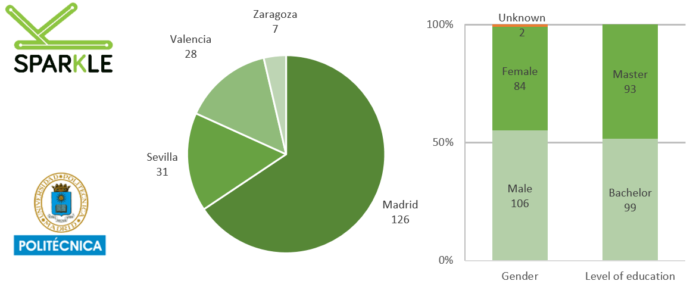To successfully address the training needs about Precision Agriculture of different stakeholders in the agricultural industry of southern Europe, the first objective of the SPARKLE project is to identify the educational demands and preferences in the community. Therefore in-depth interviews with farmers across the Mediterranean were carried out, together with detailed questionnaires that a large group of students and academics were subjected to. Currently the partners are in the final stage of collecting the responses of the community to tailor the future educational materials to their needs.
The subjects of the research should represent the variety of views towards precision agriculture in the sector. To this end each of the 4 countries will conduct interviews with a total of 4 farmers, and 8 researchers, where both groups should have representatives of the orchards sector, the viticulture sector, and the arable crops sector. Furthermore a minimum of 100 students per country of various agriculture faculties were questioned by the university partners.
As we are approaching the end of the academic year, so is the opportunity to question students. In Spain, the questionnaires of the students thus far already surpassed our expectations. Various professors of faculties of Agricultural Science across the country have passed the questionnaires during their lectures, sacrificing about 20-30 min of their teaching time to the project, for which we are very grateful!
The students reached through this approach offered up a nice demographic balance. The project partner Universidad Politécnica de Madrid (UPM) produced the majority of their results in-house, but managed to obtain contributions of across the country to account for regional variations. In the end a close to 50/50 distribution in the university stages (B.Sc. and M.Sc.) was obtained, as well as a representative gender distribution, accounting for slightly more men than women (54% and 44% respectively) with a 1% of blank answers.
Similar to the Spanish case, the other countries are rounding up there classes for the summer break, and the national reports are expected before the end of the summer, which will allow for more in-depth statistical analysis towards the end of this year!

